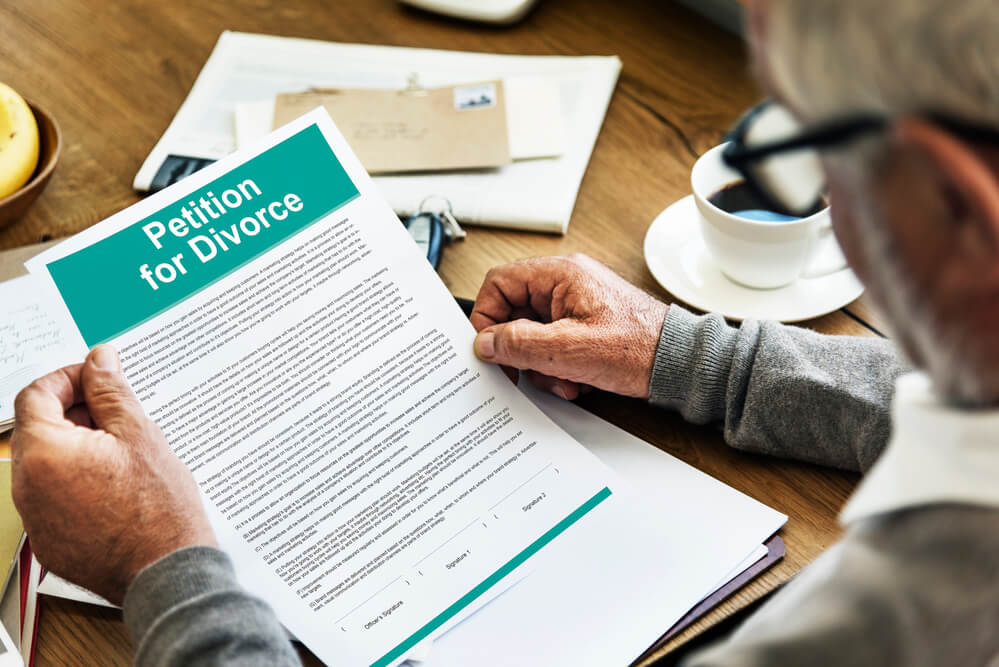If you do not agree with the divorce court judge’s ruling, it is possible to appeal the decision to have it reviewed by an appeals court. I could write an entire book about everything that is involved with Florida divorce appeals, and essentially did through the material that is published the firm’s Florida Divorce Appeals website (www.DivorceCourtAppeals.com).
For now though, if you are just starting your divorce, there is no advantage to having an extremely detailed understanding of the Florida divorce appeals process. The main thing to know at this point is how Florida divorce appeals differ from everything else that happens through trial in a divorce case.
The primary difference between Florida divorce appeals and trial court litigation, is that nearly everything in an appeal happens on paper and behind closed doors. In a Florida divorce appeal, your position is presented to the appellate court through an “argument on paper,” which is called an “appellate brief.”
In other words, in an appeal, there are no depositions and there is no trial where a judge will listen to testimony from each party. In most Florida divorce and child custody appeals, the entire case takes place on paper, with the lawyers explaining each spouse’s position in the appellate briefs.

In some Florida Divorce appeals there is a short hearing called an oral argument hearing. However, unlike a trial, an oral argument hearing is typically only twenty to forty minutes long, and consists only of legal argument from the attorneys to the appellate court judges.
To be clear, there is no testimony from witnesses at an oral argument hearing- only legal arguments from each party’s attorney. It must be noted that in most appellate courts it is rare for there to even be an oral argument hearing in a divorce appeal. Nearly all Florida divorce appeals are decided by the appellate court reading each party’s legal briefs and making a written decision.
Another difference between Florida divorce appeals and trial court litigation is the number of judges involved. With most appeals, there is typically going to be three judges that review and decide your case. In some instances, the three judges reviewing your case will initiate a process called “en banc review” that results in all of the judges at your appeals court (sometimes this is ten or more judges) taking part in deciding your case.
It should be noted that each appeals court judge employs several attorneys called law clerks. Law clerks are often from the top of the class at their law schools and play an integral part in the review of your case. Although the process varies from judge to judge, in many instances, the judges will have the law clerks review the appellate briefs and prepare what is called a “bench memorandum.” This is a document that analyzes the legal arguments made by each spouse, usually with a recommendation as to which spouse is correct. The appeals court judge will then review the briefs and the law clerk’s memorandum, before meeting with the other judges assigned to the case.
When the judges meet, there is a discussion of how whether each judge agrees or disagrees with the trial court’s ruling. Ultimately, the decision to affirm or reverse the trial court’s ruling is made by a majority vote between the judges. After a decision is reached, one of the judges will write the appellate court’s decision, called an “opinion.”
The amount of time that it takes for your Florida divorce appeal to finish will vary depending on the complexity of the issues presented, number of extensions granted to the attorneys, and whether or not the appellate court deems it necessary to expedite your appeal. Generally, most appeals take between six to eighteen months to conclude. However, when an appeal is expedited, the appeal can be over in as little as several weeks.
Further, lawyers will use divorce depositions to assist them with advising their client on whether they should settle or take their case to trial. If the other spouse “presents well” by testifying in a convincing manner than a good attorney may counsel their client to think hard about settlement. On the same token, if the other spouse does not seem believable, or presents terrible justifications for their legal position, it may become easier to turn down an insulting settlement offer and proceed to trial.
Notably, in certain situations, the deposition transcript can be turned into evidence by being read to the judge at trial. From time to time, a spouse will give testimony in their divorce deposition that supports the other spouse’s case. When this happens, a seasoned trial lawyer can make for easy presentation of evidence by simply reading the other spouse’s deposition transcript to the judge.
At the end of the day, while divorce depositions are one of the most expensive aspects of litigation, they can be an extremely valuable tool for evaluating whether or not to settle a case, and are an “absolute must” when it comes to allowing your lawyer to prepare for trial.
- Review this with one of our attorenys- Schedule a Conversation
- Call today to schedule a time to talk to an attorney (561-286-8275)



